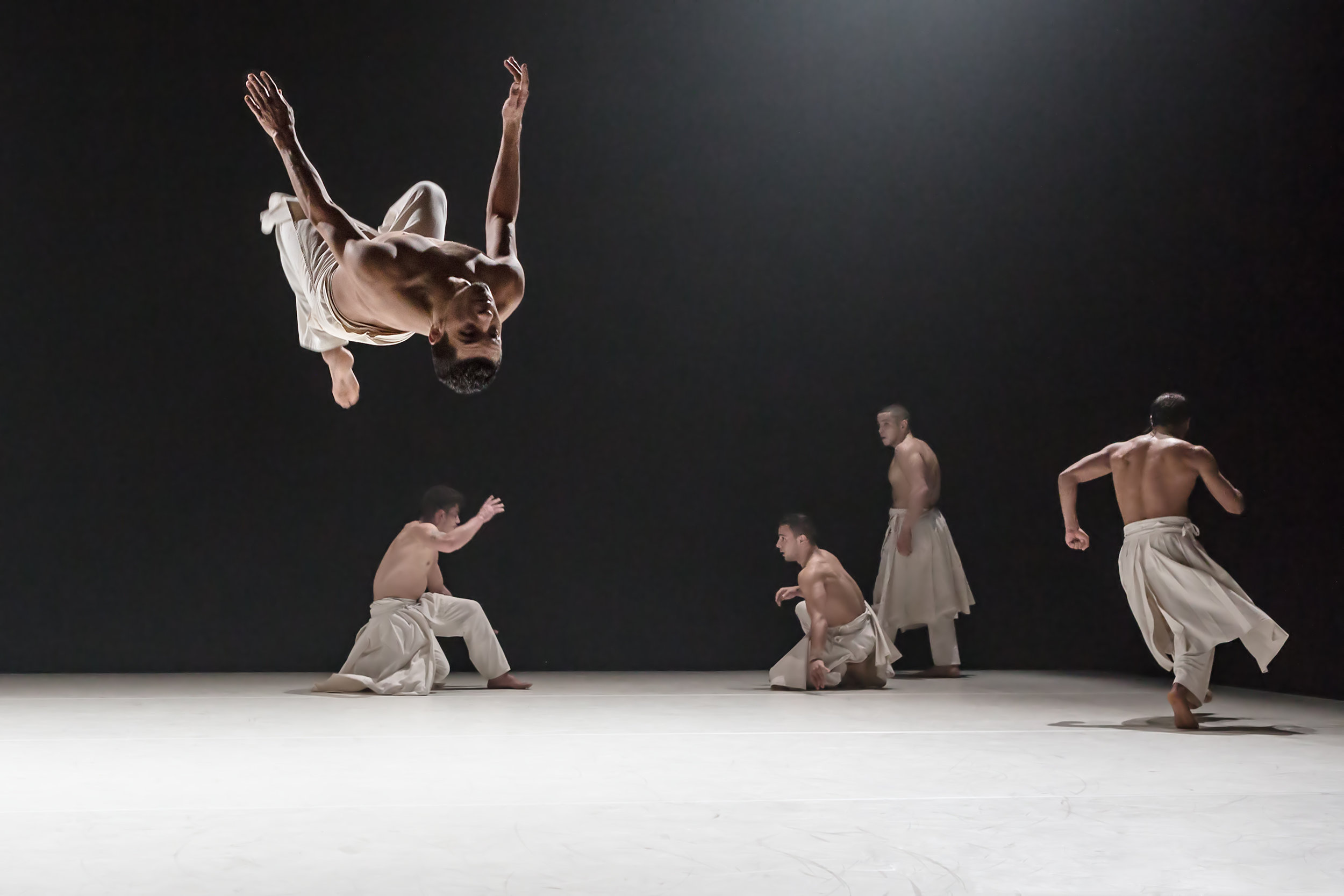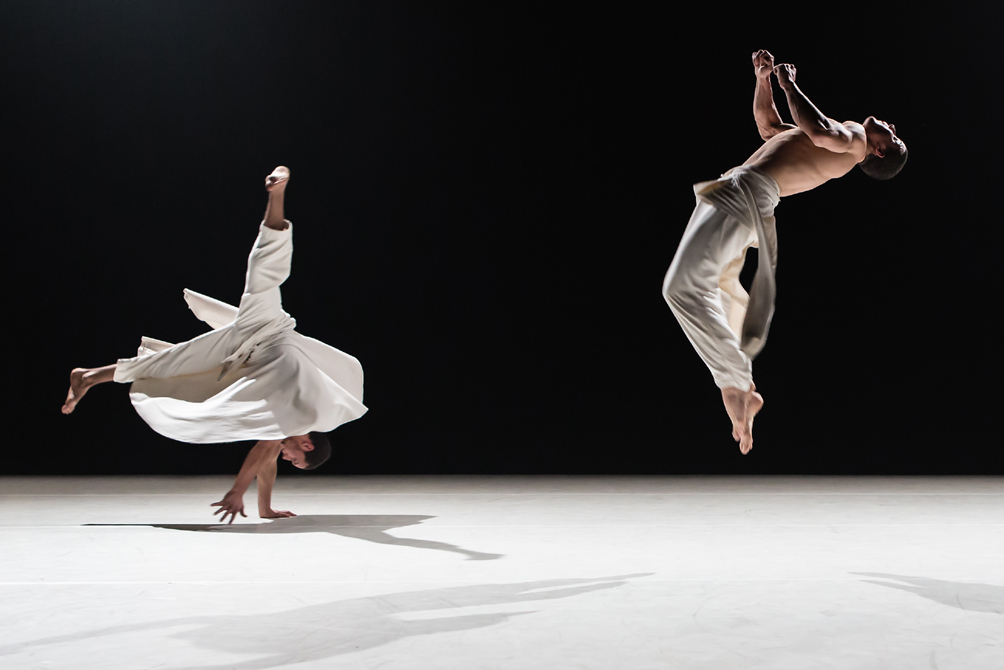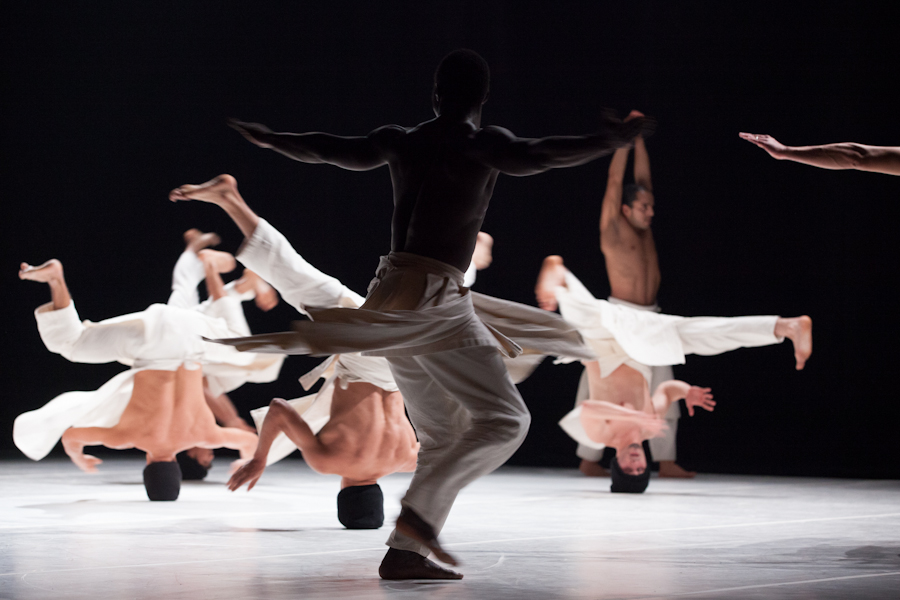We asked dance aficionado Hervé Koubi 10 questions to get a deeper understanding of what it's like being a renowned dancer, choreographer and visionary.
1. Can you tell us a little about your background and training as a dancer?
I started my dance studies in Cannes with Michele and Anne-Marie Sanguin, and with Nathalie Crimi. I pursued my development at the International dance school Rosella Hightower in Cannes, then with the Opéra de Marseille where I took a lot of classical ballet classes. In 1999, I joined the Centre Chorégraphique National de Nantes, in 2001 the Centre Chorégraphique National de Caen and in 2003 and 2008 Compagnie Thor in Brussels. Unlike my dancers I had a very regular background but the interest of the porject lies in the mixt between the technique of the dancers and my perception of dance and choreography.
2. You have a Doctorate of Pharmacology/Clinical Biology. Do you think that your studies have affected or prepared you for your work as a choreographer; and, are there any similarities between the two fields?
I studied then and become a doctor to please my parents, but I couldn’t stand to be in a pharmacy. The appeal of dance has always been too strong for me to resist. For me, there aren’t any apparent connections between pharmacy and dance. Though I did learn physiology and anatomy, which has helped me better understand movement and how the body works, and developed a love for researching. I have been fascinated by all the experiences, the research and the investigations that lead to discoveries… I love to experiment and investigate when I choreograph. For “what the day owes to the night,” I have been investigating my own history but also I have been interesting in all forms of other artistic expression of orientalism. All these elements are part of my research and help me to create my projects.
3. When did you first become interested in choreography?
When I began my career as a dancer, I worked for several national companies in France, but I always preferred to be the author. I like to converse with the audience, to share my thoughts—so I decided to use choreography as a medium to express myself.
4. Your work is a fusion of capoeira, martial arts, and urban and contemporary dance. Does this describe all of your choreography or just this specific piece?
I used to work with a variety of styles and dancers, but this project is different. With these 12 dancers, there is a choreographic alchemy I can’t explain. They respond exactly to what I expect and love in dance. They are all athletes, but I didn’t want their athletic skills to eclipse what is the more important for me in a choreographic proposal: the meaning.
I went to Algeria when I was 25 to make light in my dark (unknown) family history. I had to give life to my orientalist dreams; I had to do it with dance. I had to do it with dancers from Algeria using their specific skills. Most of the dancers I met had a very good level in dance, especially in hip-hop (break dance) and capoeira. The youth of Algeria is like that, full of power, full of dreams. Our ways crossed and paved the way for this unique dance project.
5. Is there a choreographer who has been a great inspiration for you? If so, why?
I think we are all the result of our pathway. I am part of all my mentors and choreographers I’ve worked with and/or admire. What I’ve also learned in my studies of pharmacy is that, as Lavoisier said, “Nothing is created, nothing is lost, everything is transformed.”
6. What do you want the audience to take away from your work?
I want the audience to be free to feel what they want. I would like them to be moved by what they see on stage and to share in my vision of a global culture, of a brotherhood beyond the frontiers and beliefs.
7. What is a typical day at the studio like?
We start off with stretching and cardio training for an hour and a half. After that, we keep work on our technique in hip-hop or capoeira for an hour. We end with rehearsal time for our current projects.
8. Can you tell us a little about the piece you will be performing here in Fayetteville – Ce que le jour doit à la nuit (What the Day Owes the Night)?
This piece is very important to us. What I love about this piece is that it allows the dancers to really be themselves on stage. Like I always say to our dancers, “once on stage – the piece is yours.” I enjoy providing each dancer this responsibility. They are very free in this piece, even if all the choreography is very written and precise. I love that paradox. It really permits each dancer the opportunity for self-expression and the audience a chance to connect with each dancer in their own right.
9. Can you describe or summarize your style and/or philosophy about choreography?
Dance is a very ephemeral form of art, however I am very attached to the notion of time, history and culture and how they influence the impact of dance. My philosophy about choreography is that we have to be curious, to remain open to others without demagogy—to share our love of dance with people around the world. Dance is a declaration of love. To share that passion with fellow dancers and then work together to build a beautiful piece of choreography full of meaning – as if it was the witness of a constructed common thought – is the epitome of love.
10. Pick 5 words – that start with the letter ‘H’ – that best describe your work.
Heartfelt. Healing. Harmonious. Happy. Hypnotizing.
Compagnie Hervé Koubi will be at WAC Feb. 2, 2017, at 7pm. Tickets are $10. Don't miss out!




